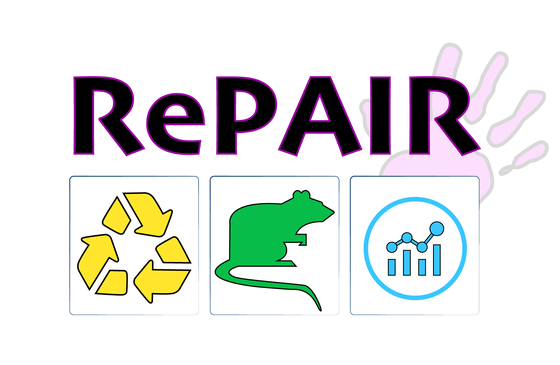A power solution for animal experiments

Publication Valeria Bonapersona et al - Nature neuroscience
How can you use statistics to increase the power of animal experiments? Low statistical power reduces the reliability of animal research; yet, increasing sample sizes to increase statistical power is problematic for both ethical and practical reasons. Valeria Bonapersona and her colleagues present an alternative solution using Bayesian priors based on historical control data, which capitalizes on the observation that control groups in general are expected to be similar to each other. Their article is published in Nature Neuroscience.
Bonapersona made a systematic review of over 1900 studies. “Based on this, at best 12% of preclinical studies are sufficiently powered. The paradox is: to be more ethical, you need more animals. So we asked ourselves the question: can we reduce the number of animals without compromising statistical power?” That’s why they developed RePAIR: Reduction by Prior Animal Informed Research. “In this simulation study we show that including data from control groups of previous studies could halve the minimum sample size required to reach the canonical 80% power, or increase power when using the same number of animals.”
Previous experiments
Currently, the number of control animals is equal to the number of the experimental animals. But by using information of previous experiments it is possible to decrease the number of control animals. Bonapersona: “To prove our method, we launched the Relacs consortium: Rodent Early Life Adversity Consortium on Stress. Ten laboratories around the world shared their data so the sample size was large enough for a validation study. It was really good to see that cooperative science is possible in animal research.”
Open-source tool
Bonapersona and her colleagues also present an open-source tool: RePAIR. “We think it is important that this tool can be widely used to apply this approach and increase statistical power, thereby improving the reliability of animal experiments.”

Collaboration
The research and development of RePAIR was a collaboration between UMC Utrecht and UMCG, where prof. Marian Joëls is the dean. Joëls is also affiliated to the UMC Utrecht as group leader of translational stress research.
All main authors of this article are financed by the Consortium of Individual Development of Utrecht University.
